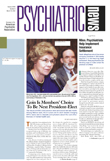It may be a university lecture on bioterrorism, an emergency response plan, a blood drive, or a talk on how to start a support group. Equally likely is a “teach-in” on the economy and the “war on terrorism” or urban-development issues in rebuilding lower Manhattan.
These are some of the many events and activities offered by colleges and universities that can be found on the Web site of the National Association of State Universities and Land-Grant Colleges (NASULGC)/Association of American Universities (AAU) Post-September 11 Resources for Universities. Altogether, 39 universities have Web pages on disaster response on the site. The site went live last December.
Borne out of collaboration between these two associations of higher learning, the site enables people at universities across the country to share information on how their campuses are facing the challenges of the post-September 11 environment.
In addition to providing links to the post-September 11 Web pages at “Member University Resource Links,” the site also links to legislative updates associated with the attacks, campus security measures, public media statements, research opportunities, and other informative terrorism-related Web pages.
“One of the great things about universities is that people associated with them like to share good ideas,” said Ann Speicher, who helped to develop the Web site and maintains its editorial content. “We are trying to provide information on what other campuses are doing to help their students cope with the events of September 11.”
Speicher said that AAU and NASULGC contacted their member colleges and universities after the terrorist attacks and asked whether they would like to share information about helping their students and faculty to cope with the attacks. Many responded by providing the URL addresses of their Web sites. For instance, Columbia University offered a compelling account of how some of their medical students offered their services at ground zero immediately following the World Trade Center attacks. The Massachusetts Institute of Technology (MIT) posted an article from the Journal of Metals written by an MIT professor and a graduate student speculating about reasons behind the collapse of the World Trade Center buildings. At Vanderbilt University, an Islamic scholar spoke about international peace.
“It is thrilling that people have found the site useful,” said Speicher.
The address of the NASULGC/AAU Post-September 11 Resources for Universities Web site is www.aau.edu/resources/resources.html. ▪
